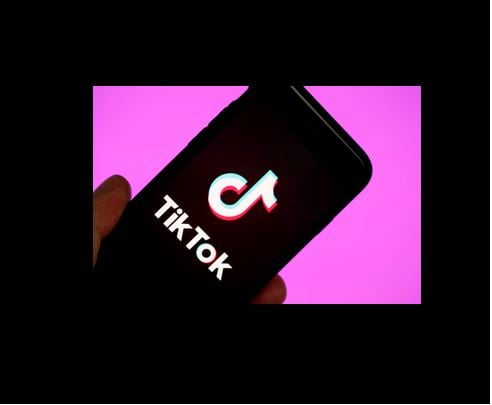
The social media giant, TikTok, is set to make a significant foray into the Southeast Asian market by becoming a major player in Indonesia’s e-commerce sector. It has agreed to invest $1.5 billion to acquire a controlling stake in an e-commerce unit of Indonesia’s largest tech conglomerate, GoTo Gojek Tokopedia. This move is seen as a strategic effort to restart TikTok’s online shopping business, which was suspended due to regulatory challenges in Indonesia.
TikTok’s Journey in Indonesia
A Brief Overview
TikTok, part of China’s ByteDance, has emerged as a global social media sensation with its short video content. In Indonesia, TikTok boasts a user base of 125 million, reflecting the country’s robust engagement with social media. This large user base positions TikTok as a potential major source of e-commerce revenue, challenging other online sellers in the region.
The E-commerce Attempt and Temporary Halt
TikTok’s foray into e-commerce in Indonesia, through TikTok Shop, was strategically aimed at leveraging its significant user base. However, the service faced a setback following an Indonesian government ban on online shopping on social media platforms, intended to protect smaller merchants and users’ data.
The Joint Venture with GoTo
Understanding the Partnership
To circumvent regulatory barriers and rejuvenate its e-commerce operations, TikTok has partnered with GoTo. GoTo’s diverse operations in ride-hailing, delivery, financial services, and e-commerce make it a pivotal player in the Indonesian tech landscape.
The Financials Involved
The deal involves TikTok purchasing a 75.01% stake in GoTo’s e-commerce unit, Tokopedia, for $840 million, with an additional $1 billion promissory note for working capital needs. This investment signifies TikTok’s commitment to injecting its resources and technological prowess into the joint venture.
Market Analysis and Future Prospects
Current Market Scenario
Analyst Maximilianus Nico Demus highlights the potential market disruption following this partnership, underlining the strategic significance of TikTok’s entry into Indonesia’s e-commerce space. The country’s e-commerce industry, with a projected value of about $160 billion by 2030, presents a lucrative opportunity for TikTok and GoTo.
Potential Impact of the Joint Venture
This strategic alliance could profoundly reshape Indonesia’s e-commerce landscape, combining TikTok’s massive user base with Tokopedia’s established e-commerce platform. The partnership aims to create an Indonesian e-commerce champion, as noted by GoTo CEO Patrick Walujo.
Regulatory Oversight and Future Plans
The joint venture, set to conclude by the first quarter of 2024, will start with a pilot period under strict regulatory supervision. Both companies have emphasized their commitment to adhering to local regulations and ensuring user data protection.
TikTok’s investment strategy reflects a long-term commitment to the venture, aiming to provide future funding to the business without further diluting GoTo’s stake.
Big development
TikTok’s strategic investment in Indonesia’s GoTo marks a significant development in the global digital economy. By merging TikTok’s social media influence with GoTo’s e-commerce expertise, this partnership could herald innovative retail solutions and significantly enhance the digital landscape in Indonesia.”
Opinion: Assessing TikTok and GoTo’s Strategic E-commerce Partnership in Indonesia
As TikTok embarks on its ambitious $1.5 billion investment in Indonesia’s GoTo, this partnership heralds a significant shift in the Southeast Asian e-commerce landscape. This move is not just about business expansion; it’s a strategic pivot in a highly competitive digital market.
From a business perspective, TikTok’s foray into Indonesia’s e-commerce via GoTo can be seen as a calculated risk, considering the regulatory challenges it has faced. The Indonesian government’s protective stance towards smaller merchants and user data has been a significant hurdle. Yet, TikTok’s willingness to invest heavily suggests confidence in the potential of this market and its regulatory environment.
The strategic value of this partnership lies in its potential to leverage TikTok’s vast user base against GoTo’s established e-commerce infrastructure. This synergy could potentially create a new e-commerce powerhouse in Indonesia, capable of rivaling other major players in the region. However, it’s crucial to consider the implications for smaller businesses and the broader market competition. Will this partnership foster a more competitive market, or could it lead to a consolidation that challenges smaller players?
Moreover, the partnership’s success hinges on navigating Indonesia’s complex regulatory landscape. The commitment to a pilot period under regulatory supervision indicates a willingness to align with local regulations, which is a positive step. But the real test will be in the execution and the partnership’s ability to adapt to regulatory demands while still achieving its business objectives.
In terms of market impact, the TikTok-GoTo alliance could potentially reshape consumer behavior and e-commerce trends in Indonesia. The integration of social media and e-commerce is not a new concept, but TikTok’s significant social media influence could bring a unique dynamic to the Indonesian market.
Finally, this partnership is a microcosm of the larger trend of tech giants diversifying and expanding their reach across different sectors. As digital platforms continue to evolve, such collaborations may become increasingly common, raising important questions about market dynamics, regulatory frameworks, and the balance between innovation and market fairness.
In conclusion, while the TikTok-GoTo venture is a bold move with the potential to significantly impact Indonesia’s e-commerce landscape, its ultimate success will depend on how effectively it navigates regulatory challenges, market competition, and consumer expectations. This partnership is not just a business venture; it’s a test case for how global tech companies can successfully integrate into local markets.

